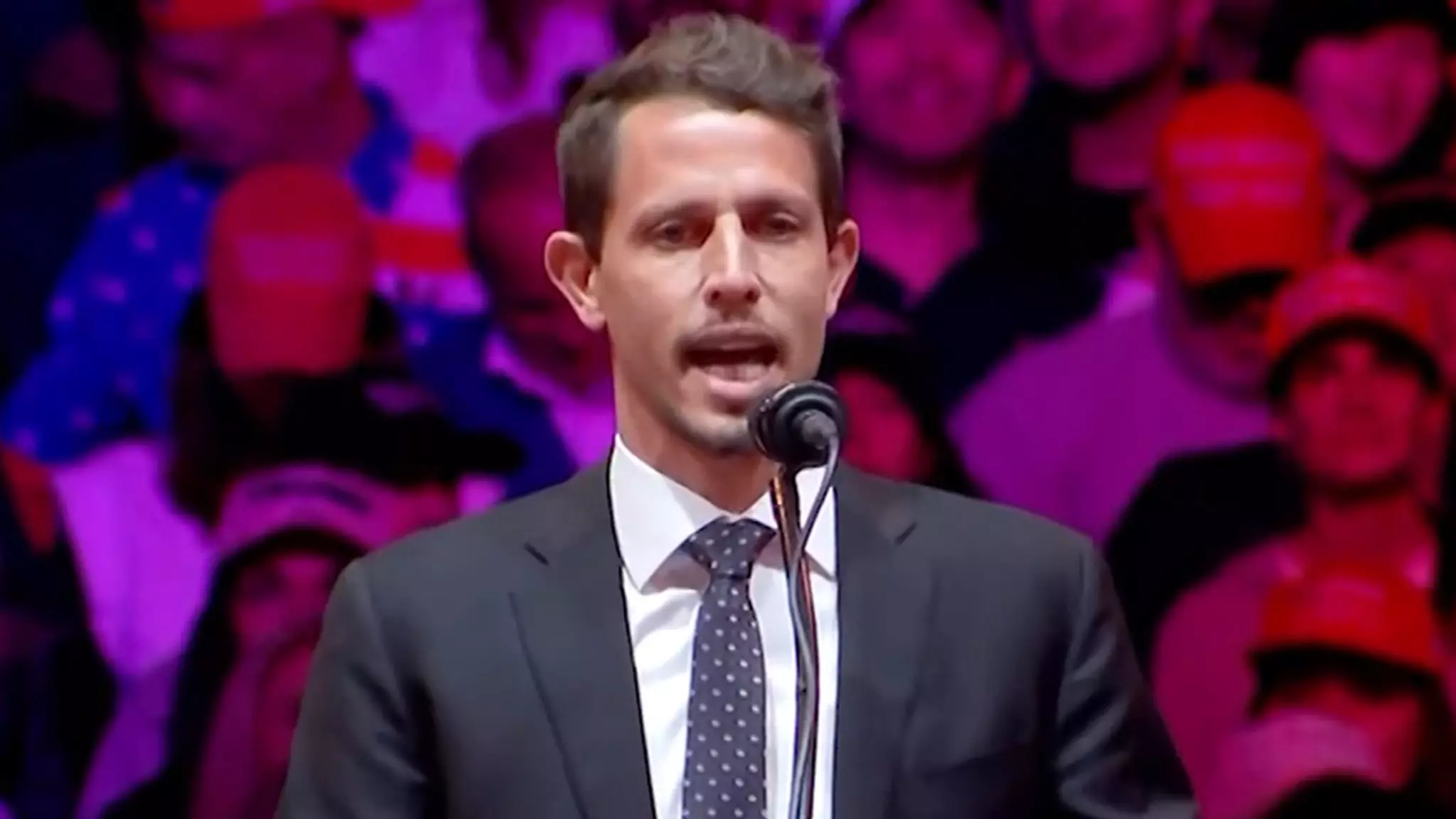Comedian Tony Hinchcliffe is no stranger to controversy; his brand of humor often challenges the boundaries of political correctness. However, during his recent performance at a rally for former President Donald Trump at Madison Square Garden, he found himself embroiled in a significant backlash that has not only sparked immediate outrage but also propelled discussions about race and comedy. This incident highlights the complex relationship between humor, politics, and societal sensitivities.
Hinchcliffe’s set, which had a mix of responses from the audience, took a sharp turn when he made a joke about Puerto Rico, referring to it as a “floating island of garbage.” The instant discomfort felt in the crowd was palpable, suggesting that even in a politically charged environment, some topics remain off-limits. The aftermath of this particular joke was met with disapproval from numerous notable figures, including political leaders like Kamala Harris’ running mate Tim Walz and Congresswoman Alexandria Ocasio-Cortez. Their swift condemnation illustrates the weight such comments carry, especially in a nation that grapples with issues of identity and community.
Walz’s response highlighted a crucial point: Puerto Ricans are American citizens, and remarks that diminish their contributions—paying taxes and serving in the military—are not merely comedic but deeply harmful. The intersection of comedy and social responsibility is a precarious one. Humor has the potential to build bridges, but it can also inflict wounds when context is ignored or malice is perceived. In today’s climate, comedians must navigate their craft with care, understanding that their words have the power to harm or heal.
In reaction to the outrage, Hinchcliffe defended himself by asserting that his comedic intent was not to target any group specifically but to encapsulate diverse perspectives within his routine. While this defense is not atypical among comics, it raises questions about accountability in comedic performances. Should there be a delineation between edgy humor and offensive rhetoric? Hinchcliffe’s retort seems to imply that if the audience had viewed his entire set, they would recognize the broader context; however, a singular unnecessarily harsh joke can overshadow the entirety of a performance.
With figures like Ricky Martin and Bad Bunny joining the conversation in the wake of Hinchcliffe’s remarks, it is evident that this incident has sparked larger discussions around representation, respect, and the role of humor in contentious environments. As comedic voices are scrutinized, it is equally critical for audiences to engage in nuanced discussions regarding the implications of humor.
This episode serves as a critical reminder of the responsibility that comes with the microphone, especially in a politically charged atmosphere. Whether Hinchcliffe will learn from this experience or continue to push the boundaries remains to be seen, but one thing is clear: the conversation about race, identity, and humor is far from over.

